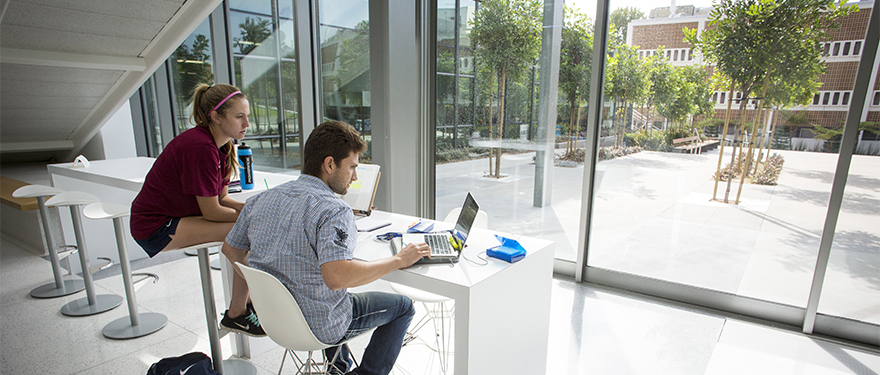Computer Science

What is Computer Science?
Computer science is centered upon the study of algorithms — well-defined sequences of steps that accomplish something of value. Most algorithms can be translated into programs that are executed by computers, thus giving the discipline its name. With or without these wonderful and fascinating devices, computer science teaches you how to solve problems of virtually any kind and provides you with techniques for successfully implementing and improving your solutions.
Computer scientists work in diverse fields such as medicine, bioinformatics, arts and entertainment, gaming, economics, cognitive science, and software engineering. They study software systems, data organization, knowledge representation, language, and intelligence.
What do Computer Science majors do?
Majors at LMU immerse themselves in 21st century, interdisciplinary curricula built on the principles of open source culture. The department emphasizes open source software development. Students compute on multiple platforms, working with computers running OS X, Linux, Windows, iOS, and Android. Students also work with phones, tablets, robots, drones, smart TVs, and various game consoles.
Computer Science majors undertake apprenticeship courses and do two senior year capstone projects. Working in world-class laboratories, students are able to conduct research leading to publication, compete in collegiate programming contests, participate in local hackathons, volunteer in the community, join professional societies, and take electives in topics such as biological databases and virtual worlds.
Is this major right for you?
You might be a Computer Science major if you:
- Are intrigued by communication, languages, and information
- Enjoy building software to improve people's lives
- Love working in a collaborative environment
- Seek a high-tech career
- Like finding efficient solutions to challenging problems
About our faculty
Our faculty members are experts in fields such as interaction architecture, information visualization, medical and multimedia data models, visual query languages, artificial intelligence, knowledge-based and database systems and storage, computer applications to music, and the role of computer programming in engineering education.
Faculty members are active researchers, developers, and authors of numerous articles, books, and open source software projects. They actively consult and participate in LA’s vibrant Silicon Beach tech scene. Collectively, they have also won national teaching awards, awards from the National Science Foundation, co-founded prominent online websites and services, worked for NASA and the Navy, founded and managed open source projects, and served on boards of directors.
About our students and graduates
Our students benefit from a rich variety of LMU learning and practice environments, including lectures, projects, team competitions, oral presentations, and independent and tutorial work. Students have full access to the Keck Computer Lab, as well as to the Virtual Engineering Sciences Learning Lab, an online interactive learning environment where they create virtual world avatars for use in their program of studies.
The LMU Computer Science major prepares students to pursue graduate degrees and participate in careers in fields such as aerospace, biotechnology, gaming, entertainment, social media, search and information retrieval, nanotechnology, mobile devices, cybersecurity, and in allied professions in the sciences, business, finance, law, and medicine.
Representative courses
Our courses have included:
- Introduction to Computer Science
- Data Structures and Algorithms
- Computer Systems Organization
- Programming Laboratory
- Theory of Computation
- Biological Databases
- Game Design
- Interaction Design
- Computer Graphics
- Programming Languages
- Language Translation and Implementation
- Operating Systems
- Software Engineering Laboratory
- Networks
- Senior Project Laboratory
- Artificial Intelligence
- Databases
- Animation Tools
- Independent Studies (various offerings)